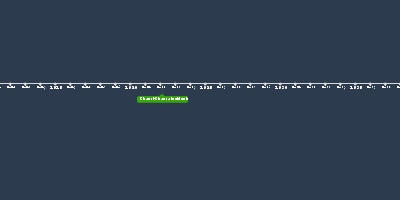The GOI Act of 1919 (1 gen 1919 anni – 31 dic 1919 anni)
Descrizione:
- also called ***Montague-Chelmsford Reform*** clarified that there would be a gradual development of self-governing institutions in India- Relaxation of central control over the provinces by demarcating and separating the central and provincial subjects --> each council making law on their subjects
########Provincial#########
Executive
- **Dyarchy in the province** with the governor as the executive head
- Two lists for administration- Reserved vs Transferred --> Transferred were to be administered by the governor with the aid of ministers whereas reserved subjects by the Governor and his executive council
- No-confidence motion can be passed for ministers and they have to resign
- failure of constitutional machinery - governor can take over transferred subjects as well -- the concept of President Rule
- separated the ***provincial and central budget for the 1st time***
Legislative:
- 70% of members were elected now; few of them were nominated to be ministers and eventually control the Transferred list
- Women were given the right to vote
- governor's assent was required to pass any bill - can veto bills and issue ordinances
- legislators can reject the budget but the governor can restore it if required
#########Central#########
Executive:
- GG as chief executive authority
- two lists - central and provincial - the concept of the 7th Schedule building up
- 3 Indians out of 6 membered Viceroy executive council
- Extensive powers to GG and Governors i.e GG can enact laws which he considered essential for safety, tranquility, or interests of the British Government
Legislative:
- **Bicameral central legislature** consisting of Council of State and Legislative Assembly --> each house to have a majority of members who were directly elected -- *******direct elections were introduced********
- Counsil of state(all male; 5 year tenure) and Central legislative assembly(3 year tenure)
- legislators can ask questions and supplementary, pass adjournment motions, and vote on some part of the budget(75% still not votable)
- Home Government or Home Charges - SoS of India paid out of British exchequer
- communal electorates were extended with separate electorates to ***Sikhs, Christians Anglo-Indians, and Europeans besides Muslims***
- **High-Commissioner for India** to be appointed who will hold the office for 6 years. Some functions performed by SOS to be transferred to him
- SOS payment to be paid by British Exchequer and not by Indian Money --> Home Charges Burden removed(Act of 1793)
- provided for the establishment of the Public Service Commission as per the Lee Commission
Aggiunto al nastro di tempo:
Data:
1 gen 1919 anni
31 dic 1919 anni
~ 12 months
